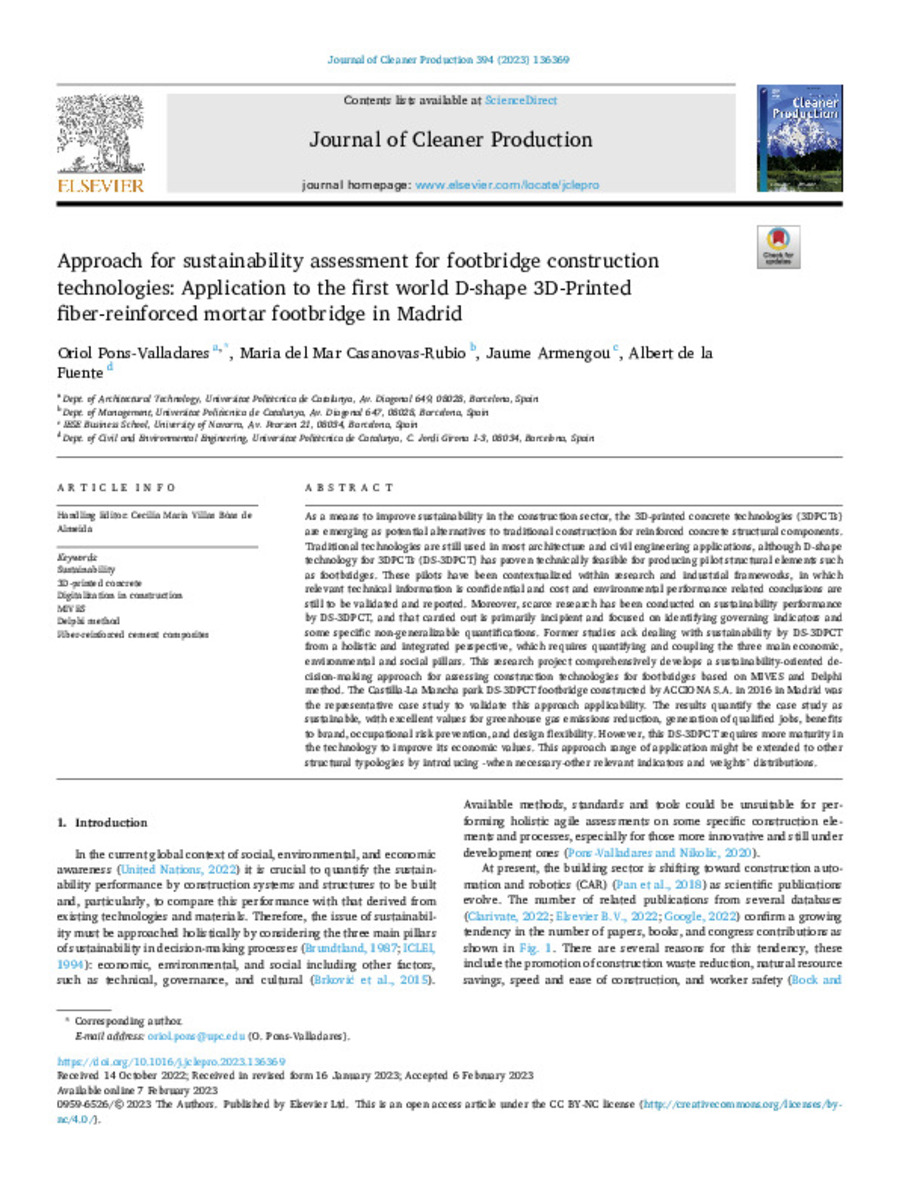Approach for sustainability assessment for footbridge construction technologies: Application to the first world D-shape 3D-Printed fiber-reinforced mortar footbridge in Madrid.
Keywords:
Sustainability
3D-printed concrete
Digitalization in construction
MIVES
Delphi method
Fiber-reinforced cement composites
Note:
This is an open access article under the CC BY NC license
Citation:
Oriol Pons-Valladares, Maria del Mar Casanovas-Rubio, Jaume Armengou, Albert de la Fuente, Approach for sustainability assessment for footbridge construction technologies: Application to the first world D-shape 3D-Printed fiber-reinforced mortar footbridge in Madrid, Journal of Cleaner Production, Volume 394, 2023, 136369, ISSN 0959-6526, https://doi.org/10.1016/j.jclepro.2023.136369.
Statistics and impact
0 citas en

0 citas en

Items in Dadun are protected by copyright, with all rights reserved, unless otherwise indicated.







